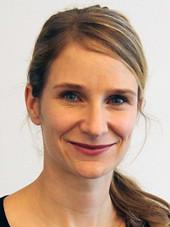The mental health of children and adolescents is already showing worrying trends before the pandemic. More than a third of 11- to 17-year-olds in Germany complained of psychosomatic complaints such as headaches, abdominal pain or sleep disorders. For fifteen years now, the number of diagnoses of depression, anxiety and eating disorders has been rising. Even after the pandemic, psychological stress for children and adolescents is significantly higher than before the pandemic.
The question arises: Are these burdens a consequence of the pressure to catch up on the learning material missed during the pandemic, or are they part of a larger "crisis backpack" loaded with experiences from the pandemic, war reporting, climate issues and inflation?
Adolescent girls are more likely than average to suffer from mental disorders, such as anxiety disorders, eating disorders and depression are affected and significantly more likely to attempt suicide than their male peers. In addition, the consumption of alcohol and drugs is increasing for every second to third person during the pandemic. An already existing "sedentary lifestyle" cumulates with the Corona pandemic and contributes to an increase in obesity, which affects one in three children. In addition, the usage time of digital leisure media increased to over four hours a day during the pandemic and then fell back to the still high pre-Corona level of three and a half hours per day.
All this shows that young people's obvious mental health problems will not disappear on their own in the foreseeable future. There is a need for easily accessible, including preventive measures, that address where children and young people are, both in educational institutions and in their leisure environments, both offline and online. Universal depression prevention programs in schools such as “Lebenslust with LARS & LISA”, “krisenchat Nothilfe per Smartphone” and "TUM4 Health" offer promising approaches to counteract the „mental health pandemic.“
Read the entire publication: "Generation Corona? Youth and (mental) health" here as PDF.
Please note, to date this study is only available in german.





